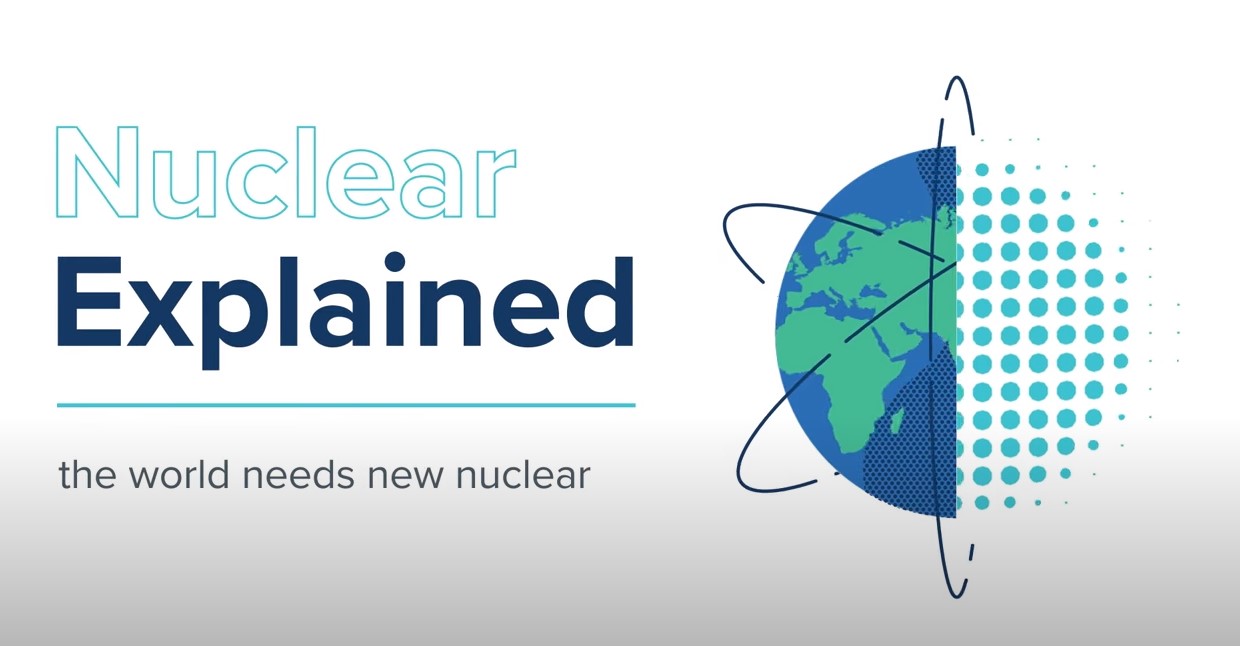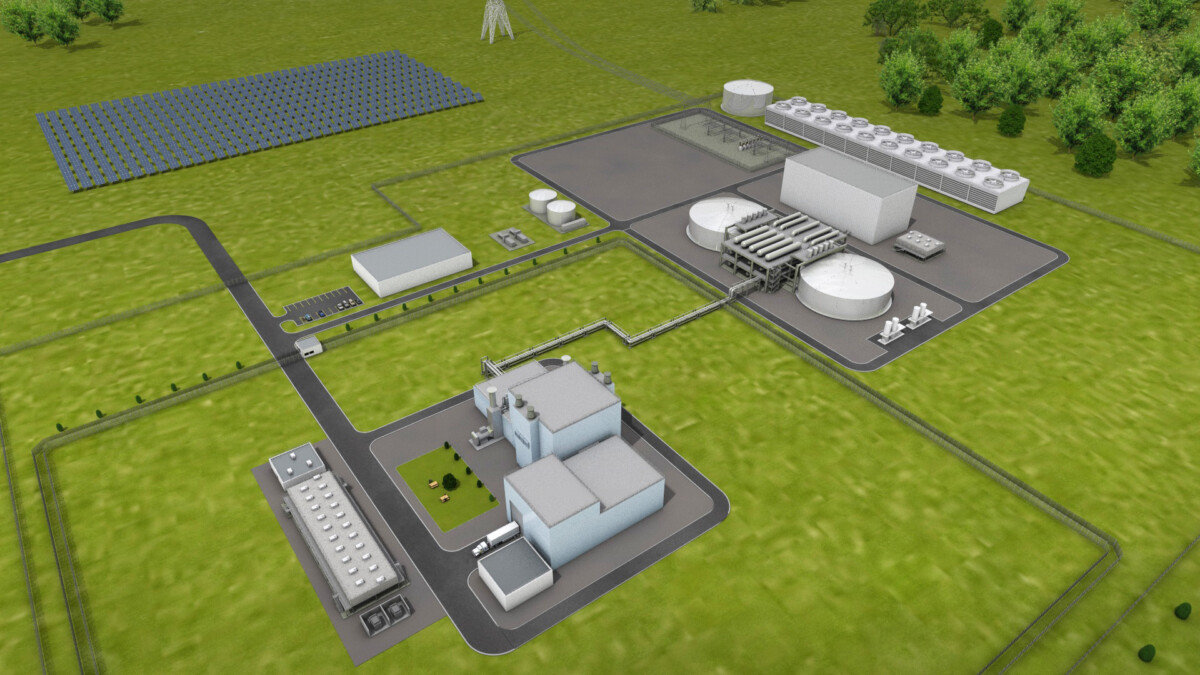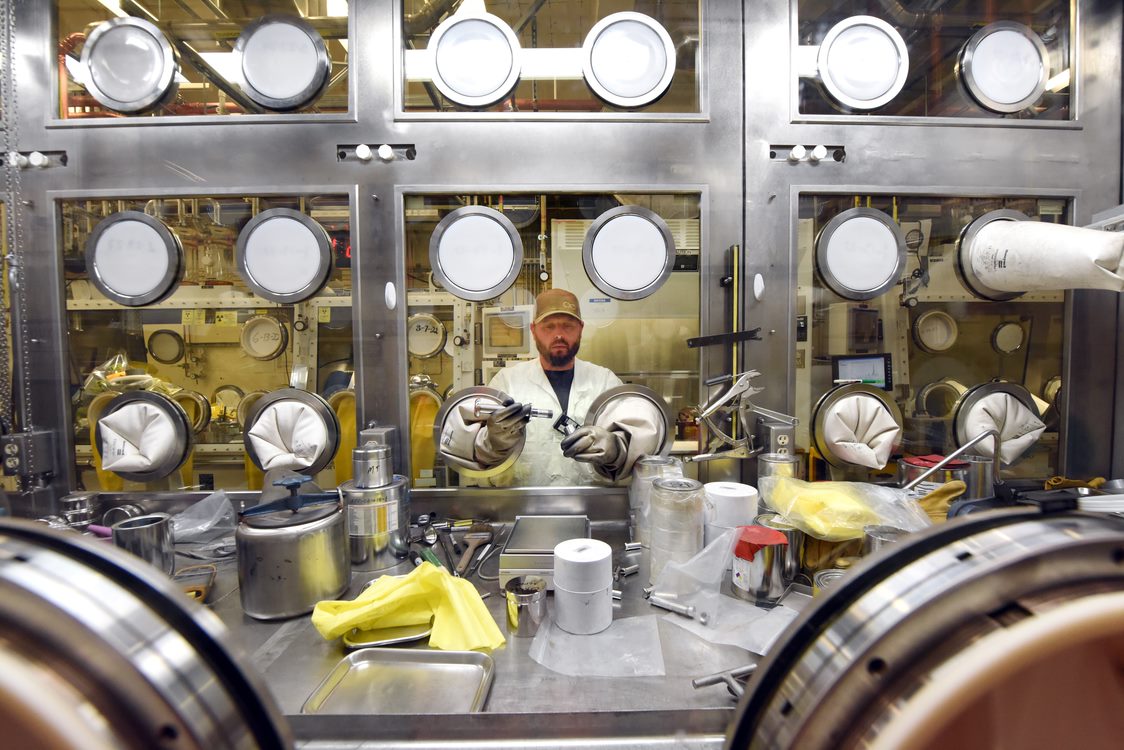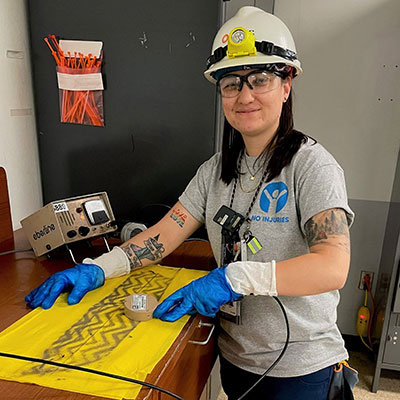Careers in
Nuclear Energy
Charge Your Future with a Nuclear Energy Career
Of the six million people who work in energy, more than 100,000 of them work in high quality, long-term jobs in nuclear energy. There are ninety-four nuclear reactors in 28 states that generate nearly 20 percent of the nation’s electricity. These plants are always on, well-operated to avoid interruptions and built to withstand extreme weather, supporting the electric grid 24/7.
Nuclear energy powers our homes and businesses. But beyond providing carbon-free electricity, nuclear technology also fuels space exploration, sterilizes medical equipment, provides potable water through desalination, supplies radioisotopes for cancer treatment and so much more. All of that from a tiny atom!
Those who work in nuclear energy are proud their work protects natural security, fights against a changing climate, ensures U.S. leadership in technology, boosts international development, protects our air, and powers electric vehicles.
Discover the Opportunities that Exist in Careers in Nuclear Energy
Apprenticeships to Begin Career Journeys
Energy employers recognize apprenticeships as a proven solution for recruiting, training, and retaining world-class talent. Nuclear energy apprenticeships, an “earn-while-you-learn” model, provide the opportunity to develop the skills of a trade, under the guidance of experienced professionals, those who have mastered their craft. Here’s a look at a few jobs:
Radiation Protection Apprentice
These apprentices go through rigorous technician training to learn special and routine plant operations, maintenance, refueling for outages or emergencies, and ensure all activities are in compliance with corporate policies, procedures, and the Nuclear Regulatory Commission. Throughout their training, they learn how to do the following:
- Conduct surveys for contamination, radiation, and airborne radioactivity
- Become proficient at the operation of radiation instrumentation and computer systems used for measurement, storage, analysis and processing of radiological data
- Prepare documentation for radiological surveys, and more.
Instrument and Controls Electronics Technician Apprentice
Individuals in these positions work closely with experienced mentors to keep critical equipment operating smoothly. These professionals locate and correct trouble in control systems and instruments of combustion equipment, as well as nuclear reactors, turbines, chlorinators, water treatment systems, and station auxiliary equipment. Work involves inspecting, cleaning, calibrating, replacing defective parts, and repairing electrical and mechanical instruments and controls. This kind of apprenticeship is ideal for those who love to troubleshoot, problem solve and relish working with gadgets, equipment, and gauges.
Careers in Skilled Trades
Skilled trade professionals have specialized knowledge, skills, and abilities garnered through technical school, college, or on-the-job training. They are subject matter experts that blend teachings from years of training with deep understanding of how things work and professional competencies to manage some of the most demanding – and rewarding – jobs in the industry. There is always a need for these talented professionals and the skills they offer. Here are a few jobs to consider:
Nuclear Welder
Nuclear welders are some of the true “fixers” in the industry. Using the tools of the trade, these pipe and equipment detectives perform x-rays and/or ultrasonic tested quality welds. Often a job for those comfortable with tight spaces, those who master skills in this area will have manual, automatic, and robotic equipment available to them. These essential workers are generally proficient with SMAW (stick) welding and should also have experience pipe welding with manual GTAW (TIG) welding processes.
Nuclear Electrician
Nuclear electricians perform general maintenance and repairs on electrical systems at nuclear power plants. Running the gambit of challenges, these “jacks of all trades” repair and maintain electrical equipment such as motors, generators commutators, circuit breakers, controls and relays, switches – essentially everything from routine equipment to complex machinery.
Careers in Engineering/Technical Operation
Those who support the technical operations and engineering functions in the nuclear industry are our left-brain thinkers. That is, they are our analytical, process-focused team members. They were generally the students most likely to ask “why” and “how” when it came to understanding how things worked. They relish challenges thrown their way and generally embrace the philosophy that the bigger the challenge, the better. Check out a few jobs here:
Nuclear Engineer
Nuclear engineers were often the students who stayed after class to learn more about how things worked, yearning to satisfy their innate curiosity. As professionals, these engineers use that penchant for problem solving to design and develop innovative new nuclear reactors and related systems. They employ an integrated approach for neutronics, thermal hydraulics, mechanical/stress, and safety analysis, to achieve accelerated reactor design development.
Nuclear Power Reactor Operators
Nuclear power reactor operators control nuclear reactors, their performances similar to those of orchestra conductors. They unite a group of skilled individuals – tweaking and adjusting each element – to produce the smooth and flawless end product. Reactor operators guide how much electricity a reactor generates by adjusting control rods. They monitor all the components, including reactors, turbines, generators, and cooling systems, making modifications as necessary.












